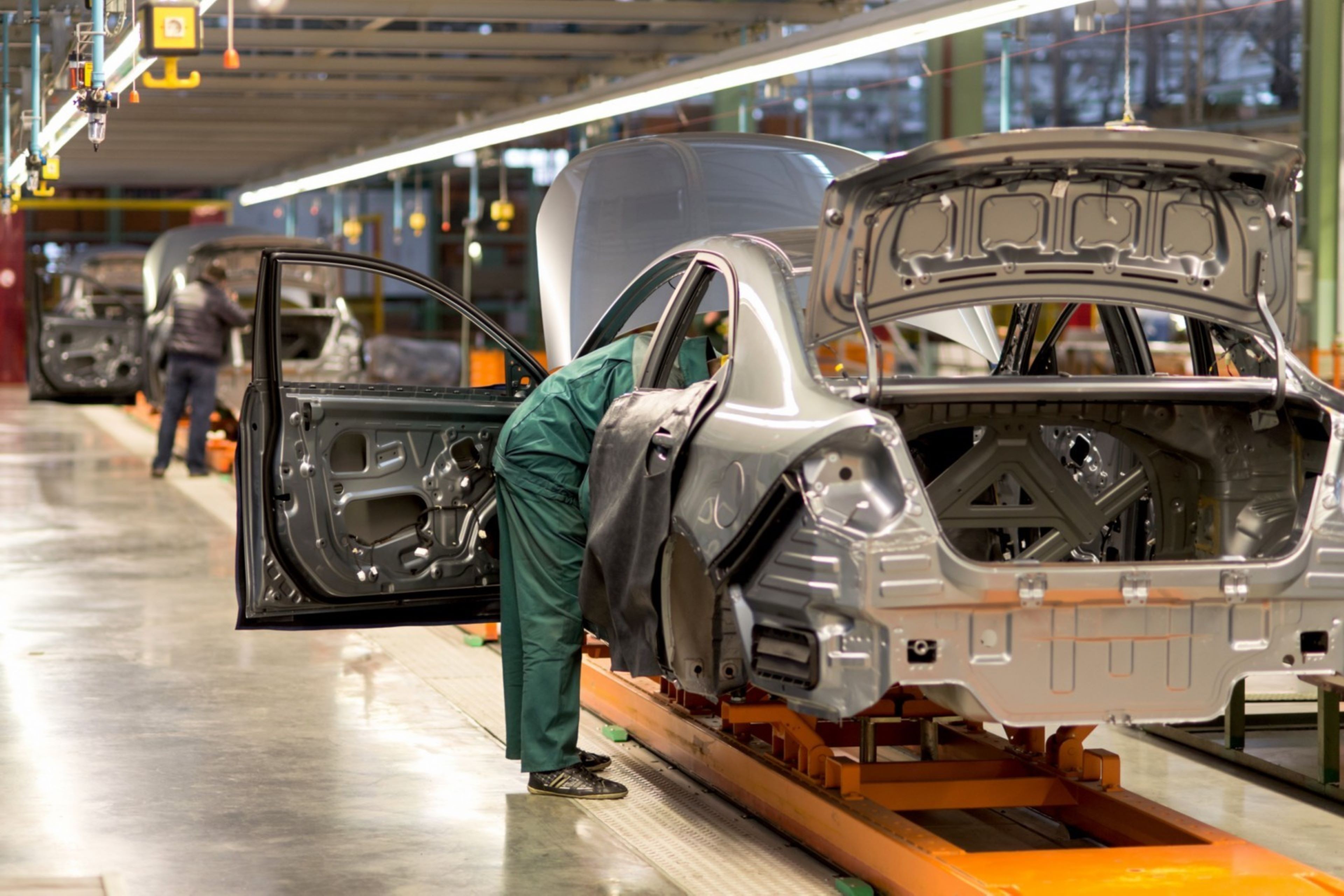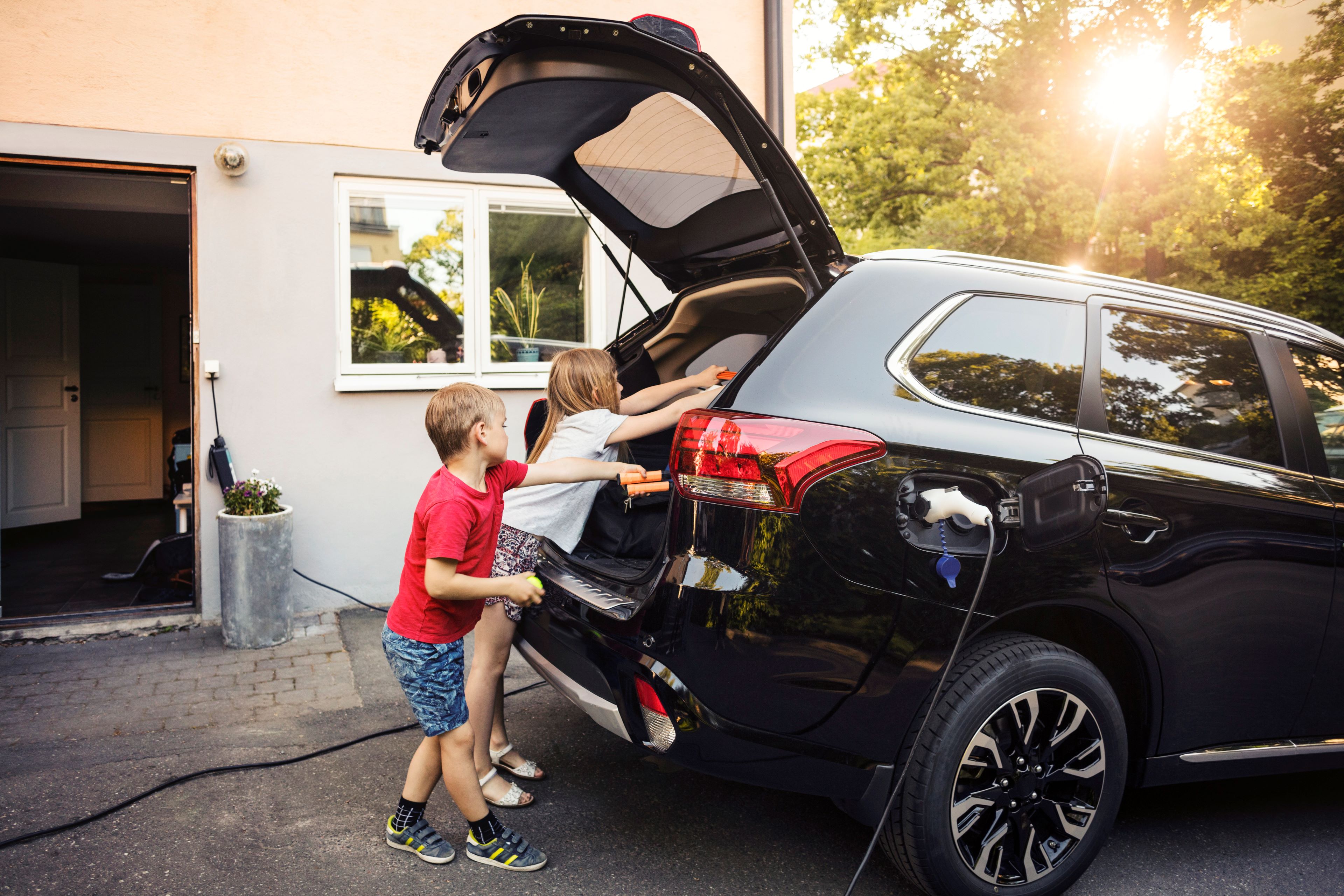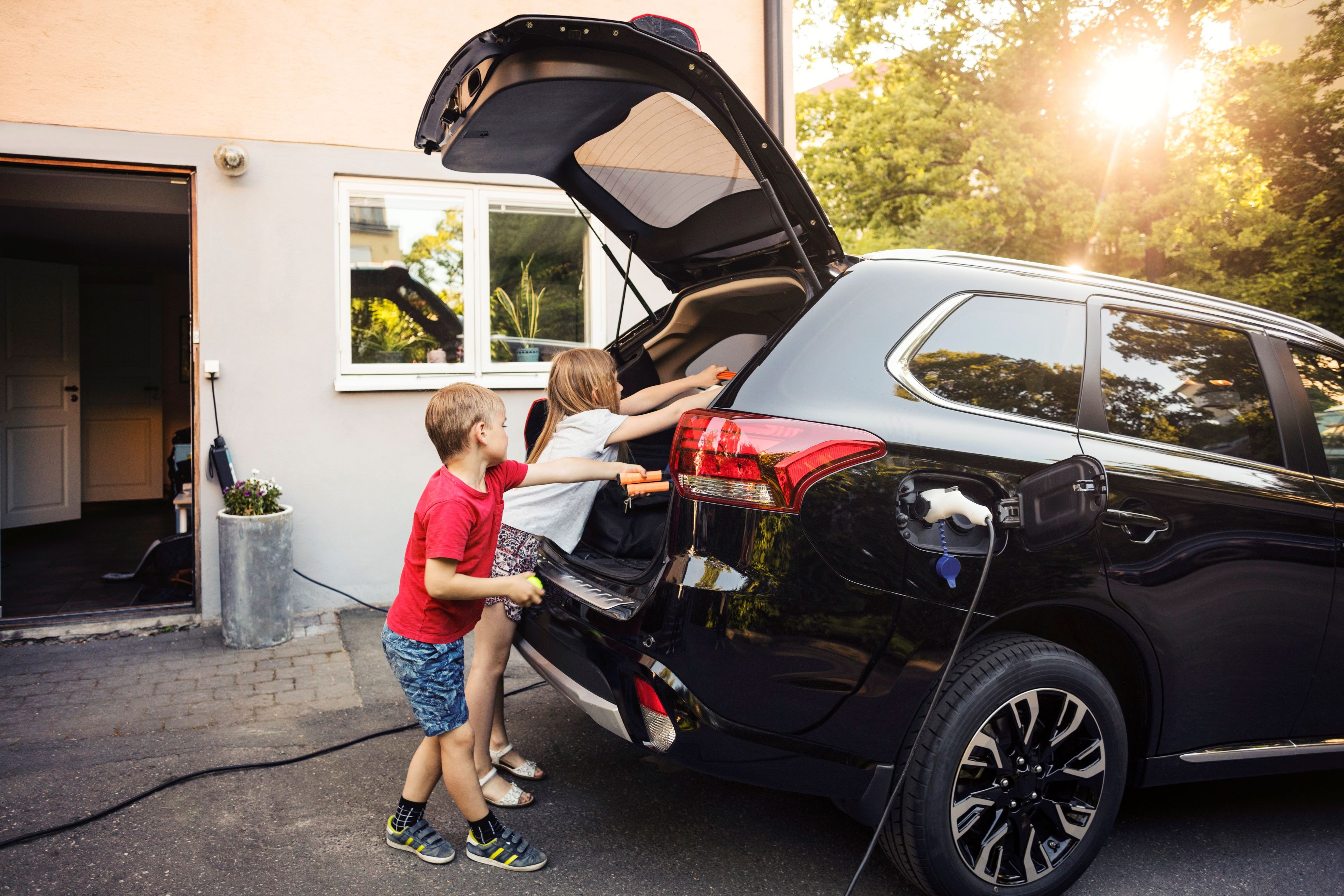EY refers to the global organization, and may refer to one or more, of the member firms of Ernst & Young Global Limited, each of which is a separate legal entity. Ernst & Young Global Limited, a UK company limited by guarantee, does not provide services to clients.
UK Electric Vehicle buying intent continues rise despite minimal growth in overall car-buying interest, EY report reveals
- Electric Vehicle (EV) buying intent up to 54% in 2023, from 49% in 2022, among potential car buyers in the UK, driven by increasing buying intent for Plug-in Hybrid Electric Vehicles (PHEVs) and Hybrids
- 45% of potential car buyers in the UK likely to purchase a vehicle in the next two years
- UK’s EV buying intent (54%) significantly higher than Internal Combustion Engine (ICE) vehicle buying intent (41%)
- EY’s Mobility Consumer Index surveys 15,000 respondents across 20 of the automotive sector’s top nations
54% of potential UK car buyers are considering an Electric Vehicle (EV) – up from 49% last year and significantly higher than the 41% of potential buyers considering an Internal Combustion Engine (ICE) vehicle – as the nation’s drive towards cleaner transport continues to show promise, according to EY’s latest Mobility Consumer Index.
The UK’s year-on-year growth in preference toward EVs outpaces its uptick in overall car-buying intent (which has grown from 44% to 45%), further emphasising the growing dominance of EVs across UK consumer demand. UK EV car-buying intent is broadly in line with the average across other major auto markets (55%).
The UK’s growth in EV buying intent was driven by increases in popularity for Plug-in Hybrid Electric Vehicles (PHEVs) and Hybrids, with both seeing an increase in buying intent of three percentage points in 2023. Buying intent for Battery Electric Vehicles (BEVs) meanwhile remained unchanged from 2022, with 19% of respondents saying they’re likely to buy one. Comparatively, 10% said they’re likely to opt for a PHEV, while 25% said they’re expecting to purchase a Hybrid.
High fuel prices, rising environmental concerns, and penalties on Internal Combustion Engine (ICE) vehicles emerged as the key motivators for potential EV buyers.
The 41% of UK respondents indicating their intent to buy an ICE vehicle was down marginally from 42% in 2022, and significantly down on 2021’s figure of 50%. The UK’s 2023 figure however remains slightly above ICE car-buying intent in the other countries featured in the survey (38%), which is down from 41% in 2022.
Overall car-buying intent fell from 45% in 2022 to 44% in 2023 across the twenty countries included in the survey.
David Borland, EY’s UK & Ireland Automotive Leader, said
“The UK auto industry continues to demonstrate resilience to the many headwinds it has faced in recent years, including the pandemic, the war in Ukraine, supply chain disruption, volatile energy prices and cost of living challenges. Demand continues to display strong recovery, with May 2023 being the 10th consecutive month of growth for passenger car sales.
“This was backed up by the survey findings, with an increase in the number of consumers preferring a personal car versus car sharing, which is a trend from the pandemic that continues to stick. The survey also highlights the continued demand from consumers for alternative powertrain technologies that are not completely reliant on public charging infrastructure.”
Cost and convenience prioritised by consumers as EV transition continues to face challenges despite demand growth
While EV buying intent in the UK has shown encouraging signs of growth in the last year according to EY’s latest Mobility Consumer Index, the report also highlights several key reasons why some consumers are still being deterred from making the switch.
Of those to express concerns around EVs, 37% said they were deterred by a lack of charging stations currently in place. The second-most significant factor dissuading UK respondents from making the EV transition was the substantial upfront cost of EVs, with 36% deeming cost a key concern, while limited EV range (27%), and expensive charging/running costs (26%) were also cited.
Sixty-four per cent of respondents indicated that 200-300 miles would be an acceptable driving range for an EV. Forty-nine per cent, meanwhile, were drawn to mid-range EVs, and 29% indicated their preference for premium EVs, despite the significant proportion of those put off from buying an EV due to substantial upfront costs.
With a particular focus on public chargers, respondents again placed convenience and cost among their top priorities. Fifty-one per cent of respondents identified difficulties locating chargers as a top challenge, while 47% said the expensive cost of charging was a leading problem. Forty per cent also displayed a lack of confidence in the reliability of public chargers, citing non-functional chargers as a leading concern.
The importance of charging infrastructure at private homes, at workplaces and on streets near homes is highly significant, with 89% of UK survey respondents saying they would prefer to charge their EVs at one of these locations. Affordability provisions may need to be put in place to accelerate the UK’s EV transition, with 54% of those expressing concerns about at-home chargers stating high electricity bills were a major concern, while 44% said they were deterred by high installation costs.
Despite the ongoing challenges facing EV infrastructure, consumer confidence continues to increase, with 90% of UK EV owners currently in the market for a vehicle saying they would buy another EV, up from 87% in 2022.
Maria Bengtsson, Electric Vehicle Lead at EY UK, said:
“EV buying intent continues to increase in the UK, as consumers place a greater focus on sustainability and attitudes towards EVs improve. These findings from our latest Mobility Consumer Index are also backed up by the recent growth in EV sales in the UK, with Battery Electric Vehicle (BEV) sales up 60% year-on-year in May. However, charging evidently remains a significant concern for potential EV buyers, both in relation to availability and cost. While it is clear that the number of chargers across the UK will need to increase significantly, it is also critical to ensure that charging capacity is available where EV drivers need it.
“This, in turn, is not only about the physical chargers being in the right places, but it is also about ensuring information about where they are located, their availability, and details of required payment methods, are all easily and quickly accessible to EV drivers. With consumers still experiencing a lack of interoperability, the customer experience must also be improved and simplified if we are to see sustained, significant growth in EV confidence among consumers to match the UK Government’s decarbonisation objectives.”
Hatchbacks emerge as leading body-type for UK car demand, as showrooms see uptick in sentiment
Despite an increasing availability of online car-buying options, dealerships are still viewed as a highly important component of the vehicle purchasing process. Sixty-five per cent of UK respondents said they were most likely to buy their next new car via a dealership or showroom, up from 62% in 2022, while 50% said they’re most likely to buy their next used car from a dealership or showroom, up significantly from 41%.
The digital customer experience is showing signs of strength, with 29% of UK respondents saying they would be willing to purchase a car from an online source, compared to 25% of global respondents. However, only 23% of UK respondents preferred to visit mobile pop-up stores/digitally-advanced showrooms as part of the purchasing process, compared to 34% of global respondents.
David Borland added
“Although consumer buying habits continue to become more digitally-enabled and retail models are evolving, it is clear that the role of the dealer is still critical, with almost two-thirds preferring to complete vehicle purchases in a dealership. This highlights the importance of human interaction in what is still an emotional purchase and ownership process, with consumers still valuing the opportunity to see and experience a vehicle in person before deciding on a purchase.”
EY’s latest Mobility Consumer Index also revealed that the UK’s preference for hatchbacks (40%) was higher than any other country surveyed in 2023, marginally above Sweden’s 39%. Meanwhile, 32% of UK respondents indicated their intention to buy an SUV, with 15% leaning towards purchasing a sedan.
The dominance of hatchbacks is even more pronounced in the UK’s used car market, with 47% of those intending to buy a used car leaning towards a hatchback, more than double the global average (23%).
Mobility habits and preferences
Only 31% of UK respondents said they now work remotely more than 3-4 times per week, down from 37% in 2022, although significantly higher than the global figure of 24%.
For both work and non-work-related travel, the UK saw an increase in the popularity of a personal car as the preferred mode of transport for respondents in 2023, with 69% selecting their own car as top choice. This represented a five percentage-point year-on-year increase in popularity for work-related travel, and an eight percentage-point year-on-year increase for non-work-related travel, emphasising the continuing and growing importance of the automotive sector to consumers.
However, 70% of UK respondents did say they would be more likely to use public transport if it was offered as a free service, up from 64% in 2022, but this is counterbalanced by the fact that only 49% said they would use their personal car less often if an urban traffic fee was introduced – down from 55% in 2022.
Related news
Challenging year ahead for the UK car industry, despite new year cheer
David Borland, EY UK & Ireland Automotive Leader, and Manu Varghese, comment on SMMT new car registration figures for January 2023.
David Borland, EY UK & Ireland Automotive Leader, comments on SMMT new car registration figures for December 2023.
EY’s latest Mobility Consumer Index reveals that Electric Vehicle (EV) buying intent is growing in the UK.
UK’s EV success hinges on six essentials as growing demand highlights infrastructure gaps
A recent study by EY and Eurelectric has highlighted that the EV transition in the UK and around the world hinges on six essentials.
EY’s David Borland, Maria Bengtsson and Mark Minihane on what the automotive and manufacturing sectors may be hoping for ahead of the Spring Budget.
Strong start to 2023 continues for the UK car industry
David Borland, EY UK & Ireland Automotive Leader, and Manu Varghese, comment on SMMT new car registration figures for February 2023.









